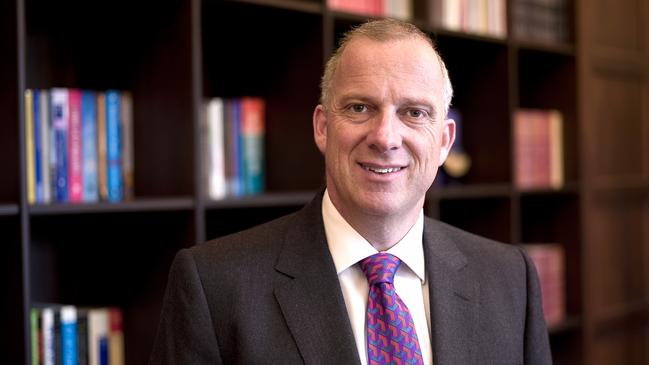Uni stands its ground on China study links
The universities sector is pushing back against a looming crackdown on foreign research partnerships.

The universities sector is pushing back against a looming crackdown on foreign research partnerships, with one vice-chancellor likening the creation of dual-use military technology to “making kitchen knives”.
Ahead of a meeting with Education Minister Dan Tehan last night on new guidelines to prevent sensitive technology from falling into the wrong hands, University of Sydney vice-chancellor Michael Spence said: “You don’t stop making kitchen knives just because they can be used to murder someone.”
Mr Tehan is working with the universities sector to finalise guidelines, amid rising concerns over research partnerships with Chinese scholars on technologies that could be weaponised, or used to violate human rights.
Dr Spence downplayed concerns over research collaboration with China, saying the debate had been clouded by “anti-China hysteria”.
He said most of his university’s collaboration with China was on “shared problems of humanity”, such as eradicating wheat rust and treating paediatric cancer.
“In areas of specific dual-use application, that may be problematic … then we need to have conversations with the intelligence services. And we are, and we do,” he told ABC radio.
Dr Spence said the Defence Trade Controls legislation “ensures that we have those conversations’’.
The Department of Defence last year advocated for the introduction of greater powers to prevent research institutions from sharing dual-use and sensitive technologies, saying the Defence Trade Controls Act was “not sufficient to protect Australia’s national interests”.
In onc case revealed by The Australian yesterday, a University of Queensland professor formed an artificial intelligence company — allegedly used by Beijing to surveil minority Uighurs — while working at the institution and receiving government grants.
The Australian also revealed last month that a University of NSW computer science professor co-authored research with Chinese generals linked to Beijing’s nuclear weapons program and supervised at least nine PhD students from China’s top military academy.
Mr Tehan has told universities he is determined to ensure all research undertaken with other countries is in Australia’s national interest. “If that means we need to put markers around certain research, then that’s what we’ll do,” he said.
It’s likely the sector will have to work much more closely with security agencies to guard against risky collaborations.
The government is keen to progress the issue as quickly as possible, amid moves by the US to introduce tough new laws on collaboration with China.
One of four bills currently before congress would ban visas for researchers linked to China’s People’s Liberation Army.
The bill suggests the Five Eyes security allies, including Australia, pass similar legislation.
The universities are anxious to avoid similar laws, fearing they would cripple the nation’s $35 billion foreign student industry.




To join the conversation, please log in. Don't have an account? Register
Join the conversation, you are commenting as Logout